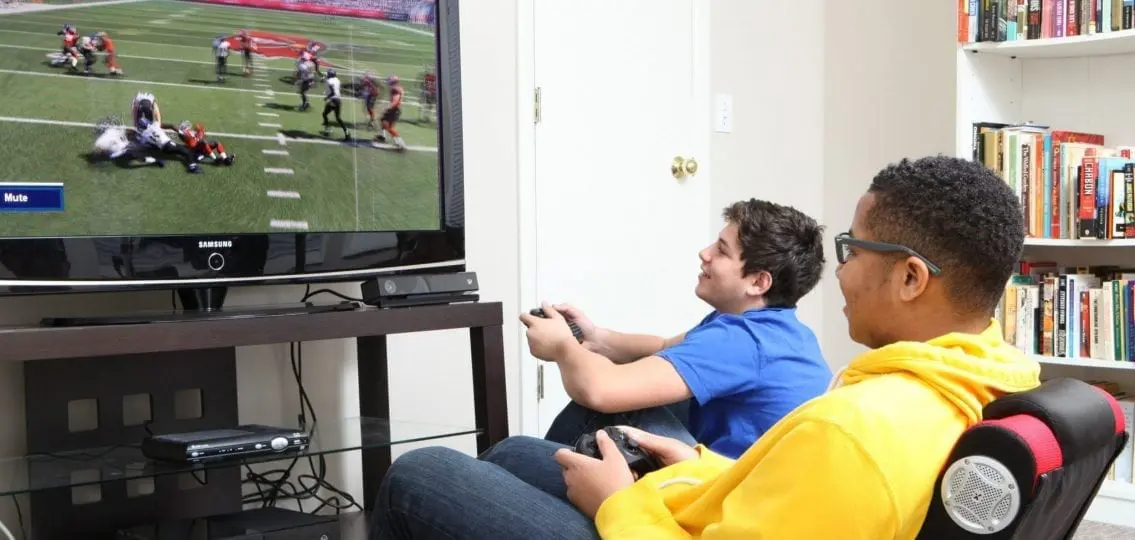I’m lucky enough to be a kid of parents who are supportive of my interest in video games. They understand why I love to game. I have a passion for it; it’s more than just a fun way to blow off steam. I have gaming goals, and I try to improve each time I play.

Things weren’t always like this. My parents and I used to fight about the time I spent gaming. It took work and patience for us to meet halfway and for our house to become one where gaming happens peacefully.
Making Peace with Video Games
My dad started watching me play, and he became interested in some of the games that are my favorites. My mom listens to stories I tell her about what I do in my games. She can’t watch or play because she gets motion sickness. But she’s learned enough about the characters to ask about them and I always love talking about them. My parents let me play a lot because I follow their rules: I can play as long as I keep up with good grades, a school sport, and spending time with my friends.
If you’re arguing in your family about video games, you can begin to try and make peace.
Begin by asking your child to show you what they like to play. It is your house, you’re the parent, if you don’t want them playing games that have violence, that’s something you have to make clear.
Then ask your child what games they like to play and why. This is where you learn what gaming means to them. You learn a lot about your child by seeing what their gaming habits and preferences are. You’ll be surprised at how much they will talk when they’re interested in something.
My parents talked to me and asked questions—and they told me their concerns about my gaming. We’ve discussed how not to become socially isolated (playing multiplayer games helps) and how to be safe online.
Many parents think playing video games will lead their kids to isolate themselves in their room or basement. This doesn’t have to be the case. When I’m gaming, my mom and dad will sit with me and read or do something else, so we’re together.
I also always leave my door open while I play. My parents have seen that video games are not isolating, but connecting. Ask your child who they play with. I have certain friends I play with all the time, including one real-life friend, so ask if they have a “team” they play with.
Seeing the connections I make while playing video games has definitely made it easier for my parents to support me.
But they also see how much pride I get from being good at gaming. Video games aren’t bad. They can be a valid and beneficial source of accomplishment. Whether it’s creating something awesome in a building game like Minecraft or developing skills in a player vs player game like Fortnite, gaming can make your kid feel proud of their abilities.
Ask your child if there’s something they’re happy to have accomplished in one of their games. The more questions you ask, the more they will want to tell you. There will be a lot of words you don’t know, so be patient and ask them to try and explain.
If you ask your kid questions about their gaming with genuine interest and respect, it will strengthen your relationship with them.
Things changed for the better when my parents stopped shouting and started talking instead. We compromised, and now on Saturday afternoon they’ll happily sit with me for a while as I play.
Video games can be a bridge between you and your child. Try it. Just because you’ve been arguing about gaming all this time doesn’t mean it has to stay this way. Together you can change things. The world is different from when you were a teen and it’s not going to go back to the way it used to be. Video gaming is here to stay, so keep an open mind and find something you can talk about.

Because my parents and I have worked hard together, and learned to compromise, now we’re a family of gamers.
Or, at least, one gamer and two knowledgeable observers.



